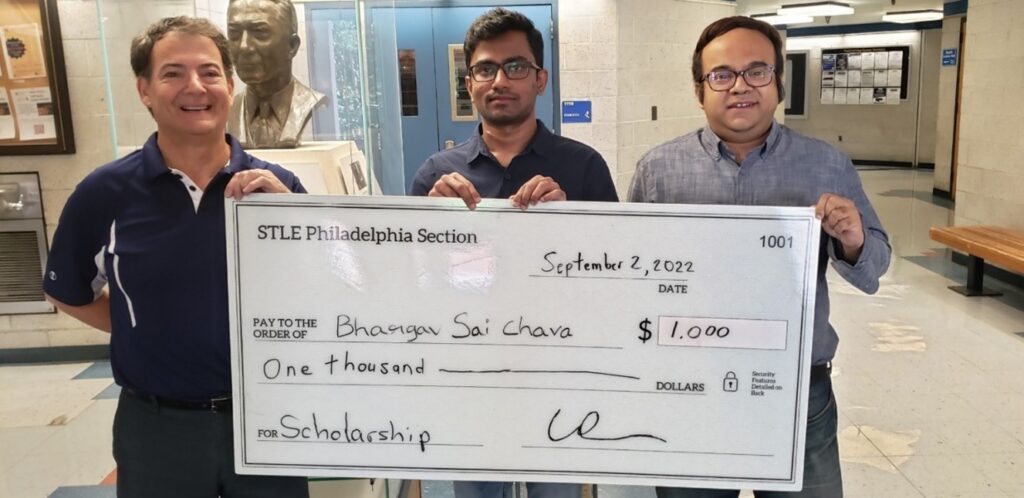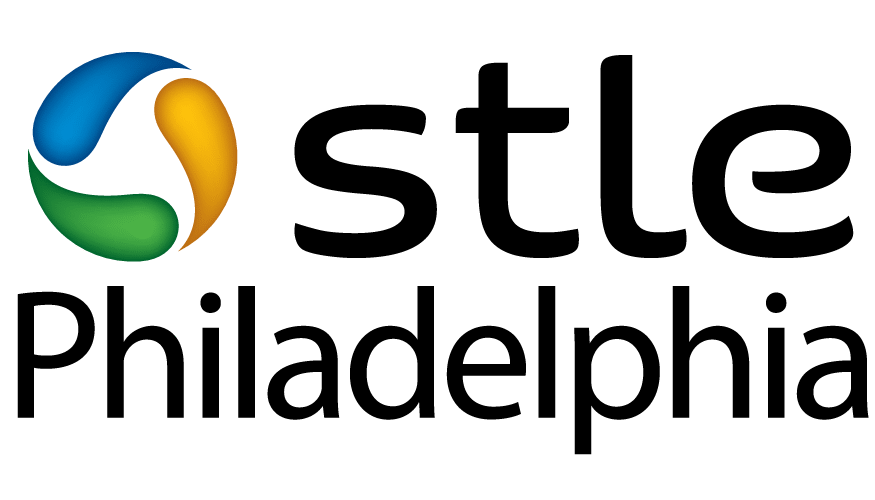
The Philadelphia Section of the STLE is pleased to award a $1,000 scholarship to University of Maryland graduate student Bhargav Sai Chava. Chava is studying for his PhD in mechanical engineering under the direction of Prof. Siddhartha Das.
Chava’s is studying the effect of sub-nanometer confinement on the structure and dynamics of electrolyte solutions. In the first stage of his research, Chava studied the filling behavior and structure of lithium bis(trifluoromethanesulfonyl)imide (LiTFSI)-based Water-in-salt electrolytes (WISE) confined in a 1-nm-wide boron nitride nanotube (BNNT) using all-atom molecular dynamics (MD) simulations. Highly concentrated WISE systems, with concentrations larger than 20 molals, have gained significant attention for potential application in aqueous Li-ion batteries. Due to the localization of cation-anion pair in the absence of free water near the negative electrode, Li-ion batteries employing such WISE systems have a wider electrochemical stability window as compared to Li-ion batteries using typical 1 molal aqueous electrolyte. However, the high salt levels are a bottleneck to commercialization. The atomistic simulations showed that a LiTFSI aqueous electrolyte solution at as low as 5 molals is sufficient to ensure water-free TFSI- anion localization at the negative electrode surface when the electrolyte solution is confined in a 1-nm-wide BNNT. This is due to the greater affinity of the TFSI- ion to enter the empty BNNT before other electrolyte molecules and the nanoconfinement-induced molecular ordering of the TFSI- ions and water molecules. These findings were published in Cell Reports Physical Sciences, with Chava being the lead author. Chava has further explored the aqueous LiTFSI-BNNT system by studying the dynamic properties of TFSI- ions and water molecules confined inside the BNNT, which resulted in a simulation-driven discovery of a non-covalent and endohedral BNNT-LiTFSI-water hybrid. This paper, with Chava as the lead author, was accepted in the Journal of Physical Chemistry C.
Chava’s findings show the structural behavior and interfacial thermodynamics of complex nanoconfined molecular liquids at an atom scale resolution, enabling the design of similar nano-lubricating systems for diverse applications. With no prior experience in nanomaterials and using atomistic modeling tools, he was able to quickly learn and progress through these highly ambitious research projects within a short period. Chava has also contributed to other projects in the Das group resulting in three additional publications.
Despite his involvement in numerous projects other than his thesis, Chava’s productivity and love for research have not come down. Acknowledging his outstanding progress, the A. James Clark College of Engineering at UMd has recently selected him as a Future Faculty Fellow. This recognition is intended for PhD students with exceptional research skills.
